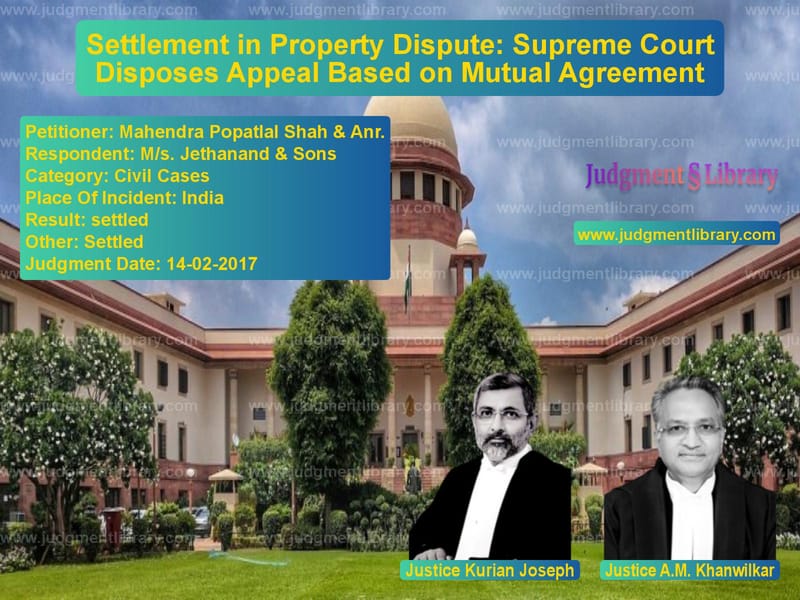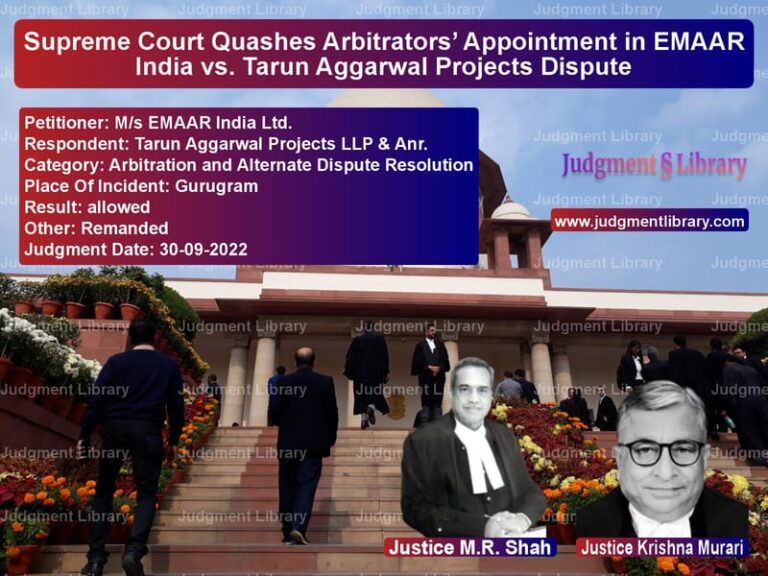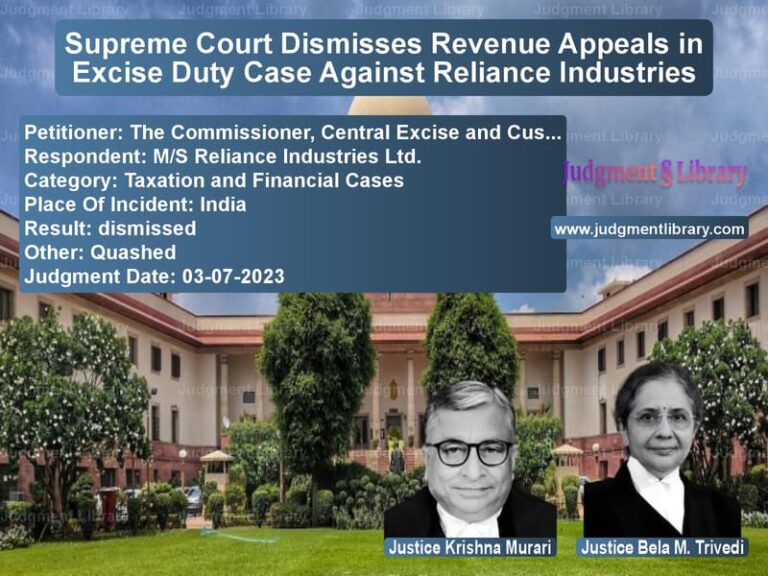Settlement in Property Dispute: Supreme Court Disposes Appeal Based on Mutual Agreement
Introduction
The Supreme Court of India, in the case of Mahendra Popatlal Shah & Anr. v. M/s. Jethanand & Sons, addressed a civil dispute concerning property-related issues. However, unlike most contested matters, this case was resolved amicably through an out-of-court settlement. The Court recorded the settlement terms agreed upon by both parties and disposed of the appeal accordingly.
This case highlights the significance of alternative dispute resolution and how the judiciary facilitates amicable resolutions when parties reach mutual agreements.
Background of the Case
The dispute arose between Mahendra Popatlal Shah and M/s. Jethanand & Sons over a long-standing property conflict. The matter had progressed through lower courts and eventually reached the Supreme Court as a civil appeal.
The primary legal issues in the case were:
- Property ownership and usage rights.
- Financial obligations between the parties.
- Enforceability of any prior agreements or lease terms.
Rather than pursuing prolonged litigation, both parties engaged in settlement discussions and arrived at a mutually agreeable solution, which they presented before the Supreme Court.
Key Developments in the Supreme Court
During the proceedings, the learned counsel for both parties informed the Court that they had successfully settled the matter outside the courtroom. They further submitted the written settlement agreement, which was filed on July 2, 2016.
The Supreme Court acknowledged this development and noted:
“The parties have settled the matter outside the Court, and the settlement terms have been reduced to writing.”
The Court further stated:
“The said consent terms agreed between the parties and filed on 02.07.2016 are taken on record and shall form part of the decree.”
Given that both parties had voluntarily resolved their dispute, the Court saw no reason to continue with the appeal. The case was accordingly disposed of.
Final Judgment
The Supreme Court ruled:
- The settlement agreement was formally recorded and became part of the decree.
- The appeal was disposed of based on mutual consent.
- No further litigation was required in the matter.
Implications of the Judgment
This judgment underscores the importance of settlement in civil disputes. Key takeaways from the ruling include:
- Parties in legal disputes can avoid prolonged litigation through mutual agreement.
- The judiciary recognizes and encourages settlements as a valid mechanism for dispute resolution.
- Recording settlements as part of the decree ensures legal enforceability of the agreed terms.
Conclusion
The Supreme Court’s decision in Mahendra Popatlal Shah & Anr. v. M/s. Jethanand & Sons highlights the efficiency of dispute resolution outside the courtroom. By acknowledging and formalizing settlements, the judiciary ensures that both parties can move forward without unnecessary legal battles. This case serves as a model for resolving property disputes amicably, emphasizing the role of mediation and mutual agreement in the Indian legal system.
Don’t miss out on the full details! Download the complete judgment in PDF format below and gain valuable insights instantly!
Download Judgment: Mahendra Popatlal Sh vs Ms. Jethanand & Son Supreme Court of India Judgment Dated 14-02-2017.pdf
Direct Downlaod Judgment: Direct downlaod this Judgment
See all petitions in Property Disputes
See all petitions in Settlement Agreements
See all petitions in Judgment by Kurian Joseph
See all petitions in Judgment by A M Khanwilkar
See all petitions in settled
See all petitions in settled
See all petitions in supreme court of India judgments February 2017
See all petitions in 2017 judgments
See all posts in Civil Cases Category
See all allowed petitions in Civil Cases Category
See all Dismissed petitions in Civil Cases Category
See all partially allowed petitions in Civil Cases Category







